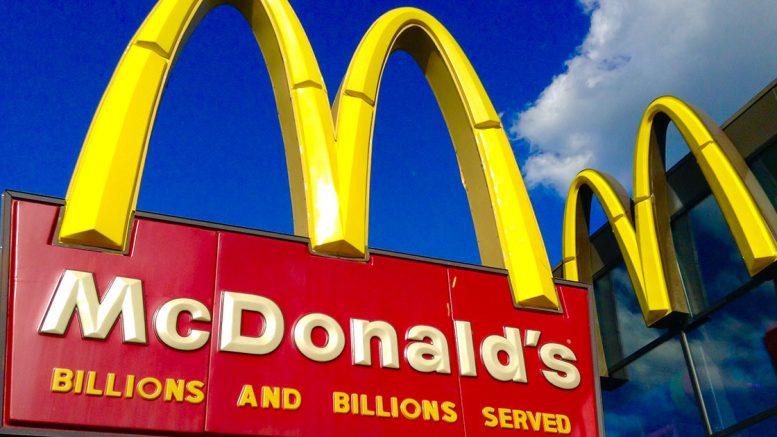A district judge in California ruled last week to allow a class action lawsuit alleging wage theft to go forward, even though he remained unconvinced that McDonald’s Corporation exercises enough control over working conditions in the franchise stores to be held liable for fair wage and overtime claims.
Courthouse News Service reported last week,
“McDonald’s did not exercise direct or indirect control over plaintiffs’ wages, hours, or working conditions,” U.S. District Judge Richard Seeborg wrote in his Tuesday order, adding that the corporation’s operating standards protect the integrity of the McDonald’s brand, but hiring, firing, discipline and other personnel decisions.
But the report said the judge also said a jury could find McDonald’s a joint employer under the “ostensible agency” theory, since workers hold the reasonable belief that they are employed by McDonald’s.
Seeborg said,
Though it is a close call, particularly as plaintiffs are long-term employees, viewing the evidence in the light most favorable to plaintiffs, a jury could reasonably find McDonald’s to be a joint employer by virtue of an ostensible agency relationship.
In 2014, the workers sued the franchisee entity Haynes Partnership, that has owned eight franchises in Oakland and San Leandro since 2010. Led by three cashiers, the suit claimed they were denied meal and rest breaks and were not paid for all the hours they worked. They alleged the reason was that McDonald’s computer system killed overtime from their timecards.
Courthouse News stated,
Seeborg noted that Haynes controlled hiring, firing, discipline, wages and general working conditions, much like the franchisees in Ochoa v. McDonald’s Corp., another wage and hour class action filed in the Northern District of California.
The judge noted that the Ochoa case is set to go to trial on December 5, 2016, on the same ostensible agency theory, stating,
Looking at the record, there is considerable evidence, albeit subject to dispute, that McDonalds [sic] caused plaintiffs reasonably to believe Haynes was acting as its agent. To begin, plaintiffs uniformly declare they believed both they and Haynes worked for McDonalds. They also must wear McDonalds uniforms, prepare and serve McDonalds food in McDonalds packaging, and greet customers by saying ‘Welcome to McDonald’s.’ Plaintiffs’ managers, who were subject to training by McDonalds and interacted regularly with McDonalds consultants, wore McDonalds’ uniforms, and referred to themselves as ‘working for McDonald’s.’
Michael Rubin, the class action attorney for the case, told Courthouse News,
If plaintiffs prevail on our ostensible agency theory at trial, we will have no need to appeal the ruling on our other liability theories. And if we do not prevail at trial on ostensible agency, we have very strong grounds for appeal given the many disputed issues of fact that we believe are material to McDonald’s ‘joint employer’ status.
Source: www.bluemaumau.org





Be the first to comment on "Judge Allows Class Action Worker Wage Theft Litigation to Proceed"